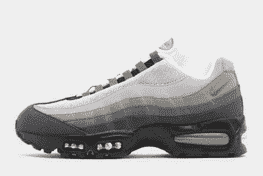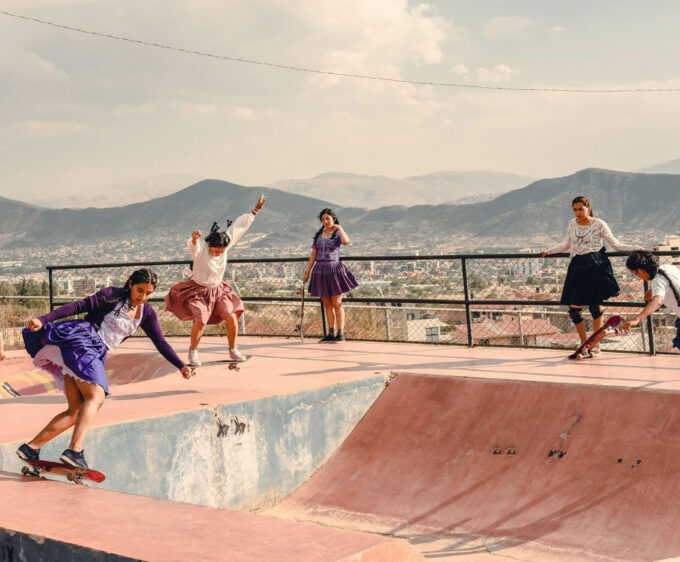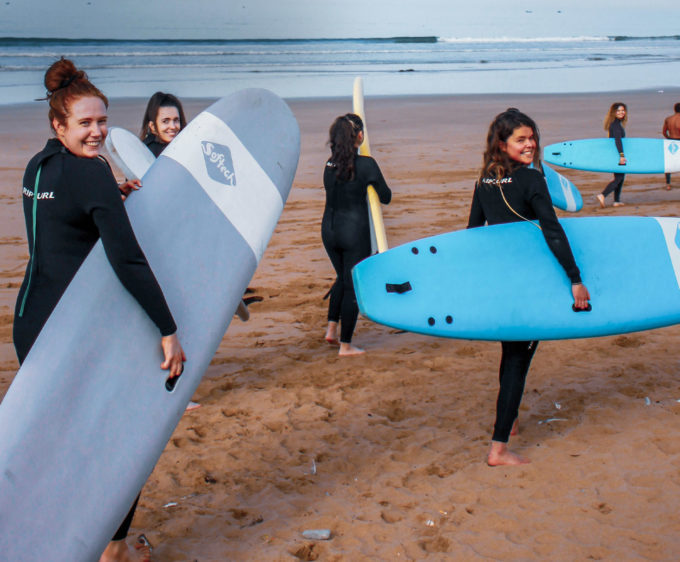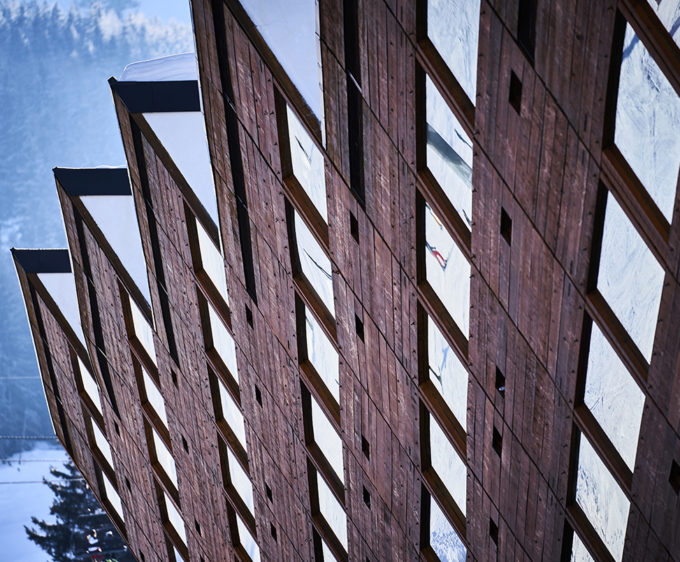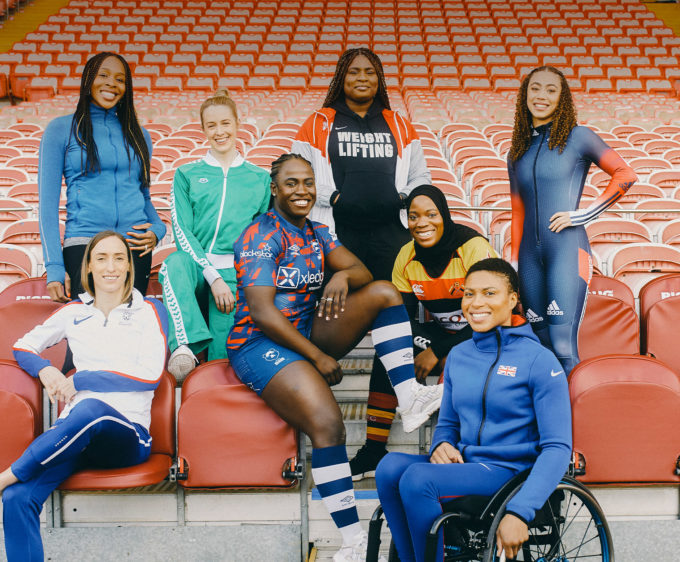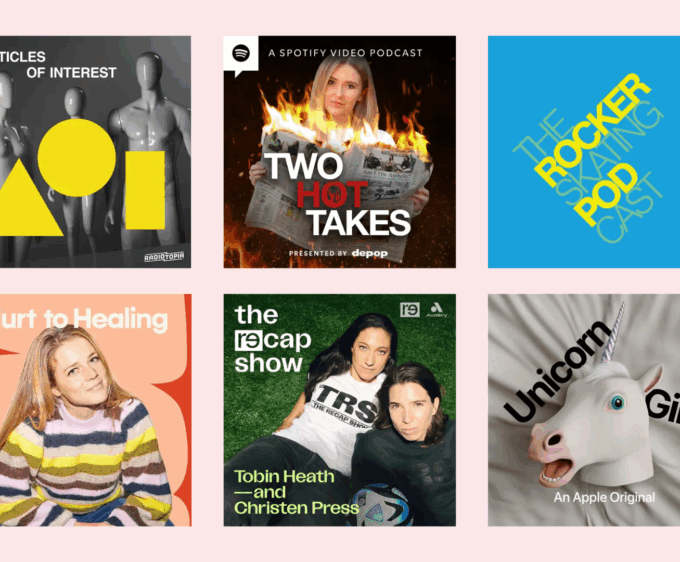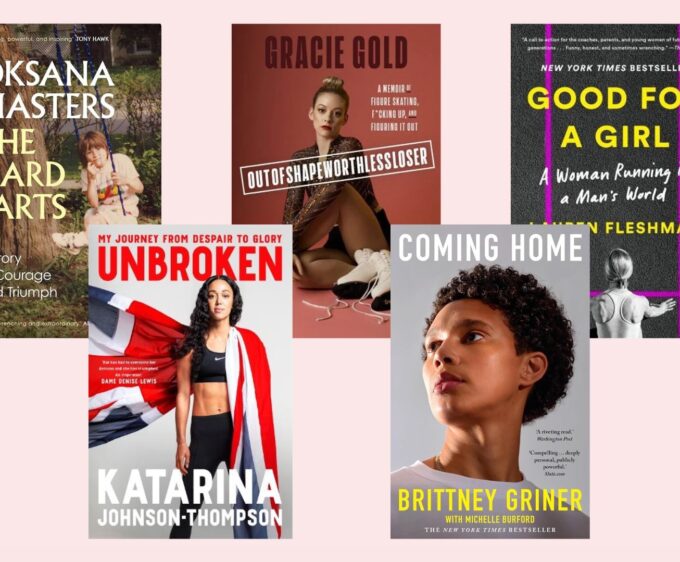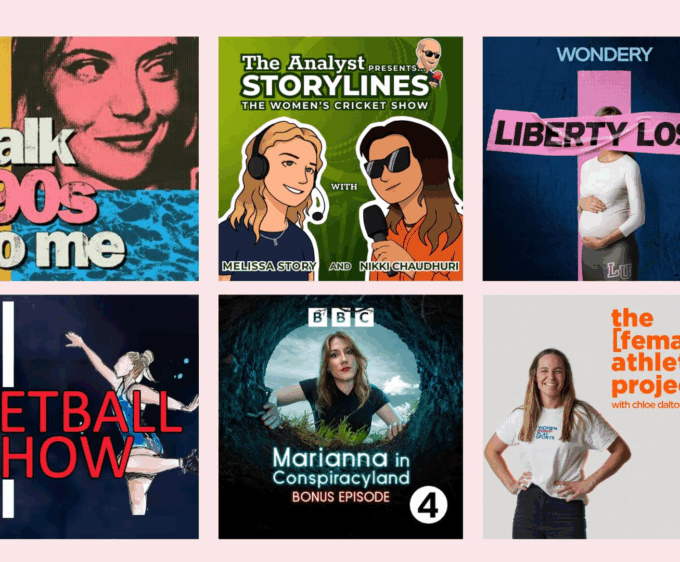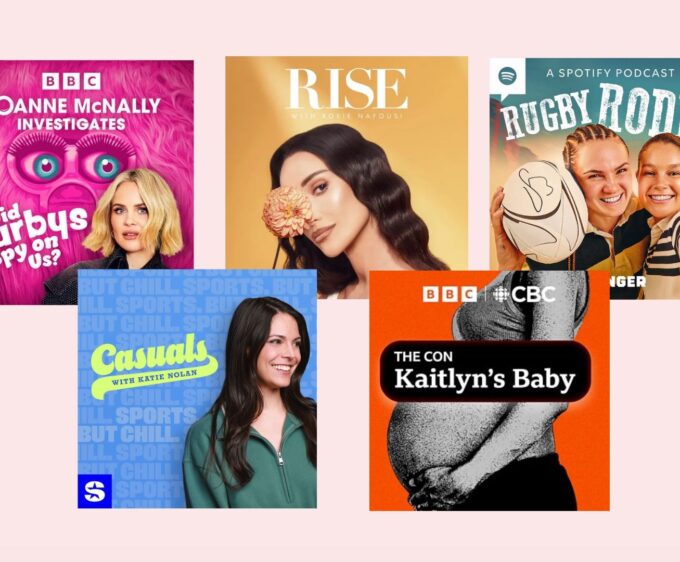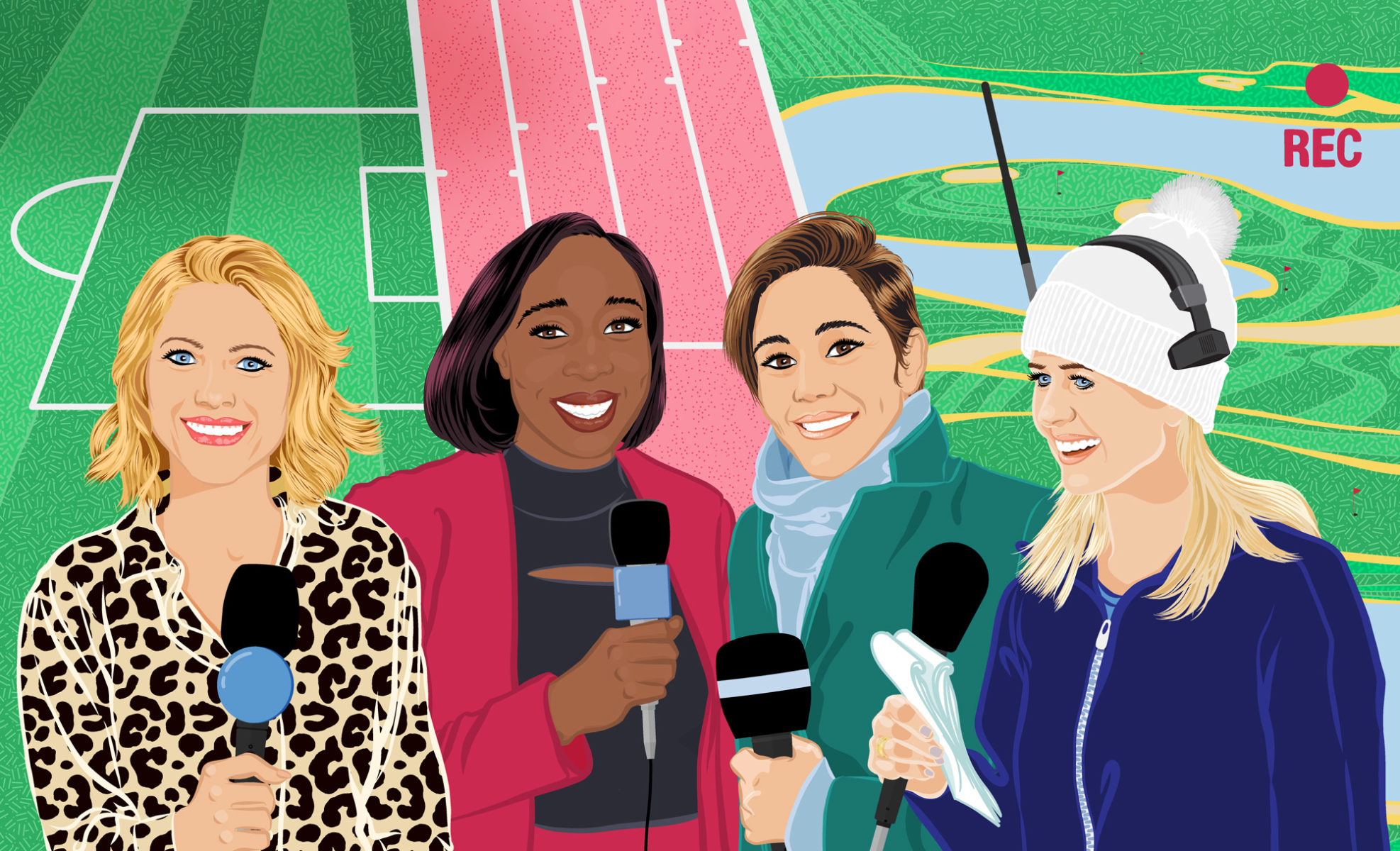
Airing Their Views: Female Pundits
It’s not always an easy journey but many British women, often former athletes, are taking over as sport presenters, commentators and pundits. We discover what the journey is like for Jacqui Oatley, Jeanette Kwakye, Eilidh Barbour and Iona Stephen
By Rebecca Myers
Illustration by Cybèle
Jacqui Oatley never set out to make history. When she was asked to commentate on Match of the Day in April 2007, she prayed that no one would look too closely at the listings and notice what a significant programme it was going to be. She had no such luck. Four days before the game, the newspapers got wind of the story: she was to be the first woman ever to commentate for the flagship football show.
The Daily Mail ran an article canvassing figures in the game on ‘the first lady’, with the words ‘split opinion’ in huge black capital letters. “Is it right that a woman should commentate on the male-dominated world of football?” it asked. Many thought not. A leading football manager said that everyone he knew in football was “totally against it”, while a Mail writer called it an insult to male commentators and compared female voices to fire sirens. The staggeringly sexist reaction then became a story in itself, with other newspapers running stories on the backlash to the backlash.
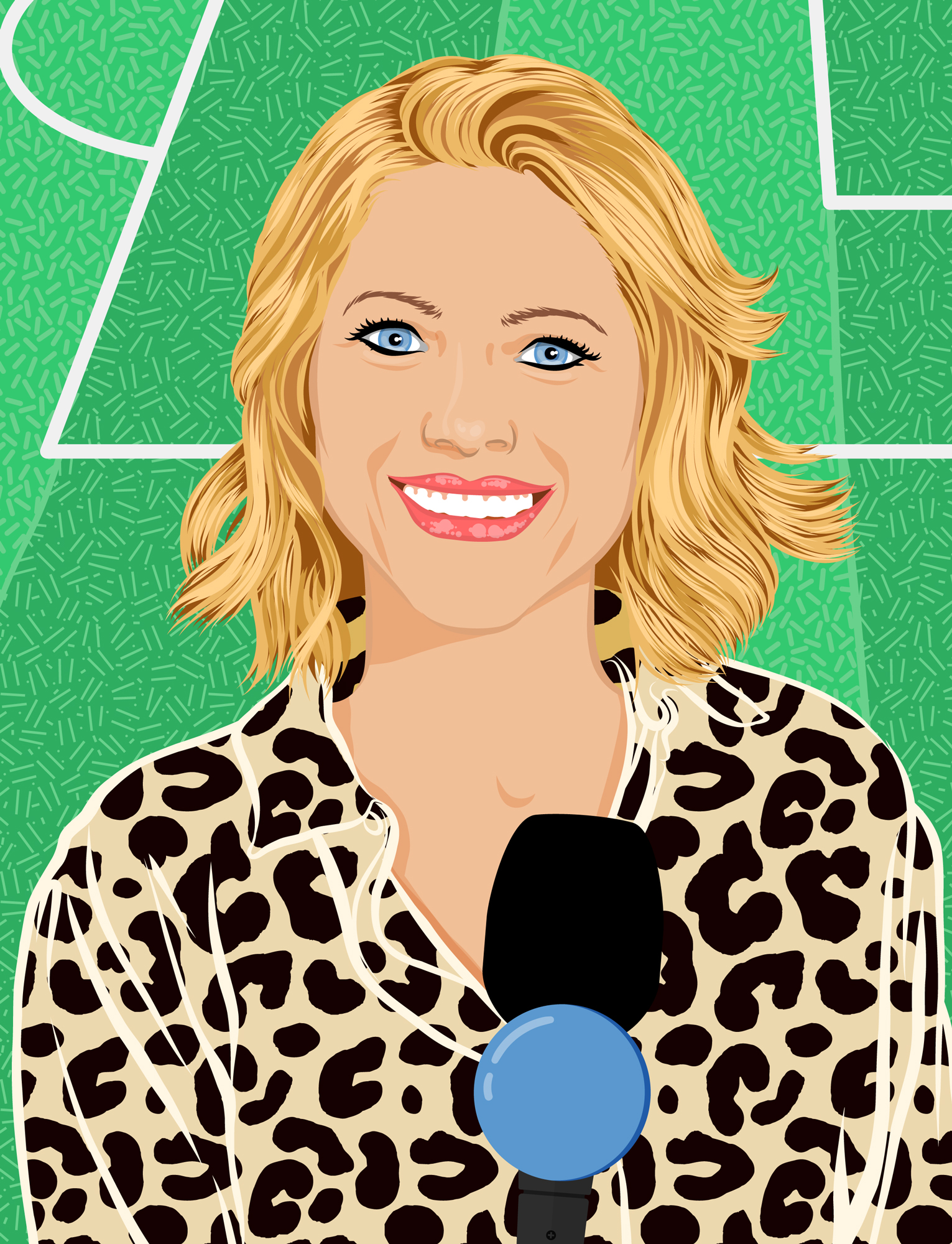
When she thinks back on it now, Jacqui is just pleased she survived it. “Inside, I’m really proud of myself for getting through it,” she says, speaking by phone from her home. She has just finished work on the final weekend of the FA Women’s Super League and completed her first season leading the commentary for Sky Sports. “It was this crazy week. I didn’t have time to do my prep until 11.30 the night before because my phone didn’t stop [ringing]. The world went mad.” More than anything, she just wanted to do her job – quietly, ideally, with no fanfare and no grand historic achievement. The complicated emotions at the time make it hard for her to look back and feel proud of that landmark moment, but she says: “I am proud of the fact that it’s not a big deal anymore. We have so many women commentating.”
The landscape has changed dramatically in the past 15 years, since that MOTD furore. Jacqui, now 47, is one of the most respected broadcasters in the country, commentating at everything from the World Cup to the Premier League, and leading Sky’s commentary of the Women’s Super League. These days, it would be more unusual not to hear her voice at a major event. Today’s female broadcasters haven’t forgotten, however, how recently such blatant discrimination occurred. “Jacqui took a bullet for us,” Match of the Day’s Robyn Cowen said of her in the build-up to the 2018 World Cup, in which there were a historic number of female voices in the TV coverage. “Jacqui sits on a throne for me,” says Jeanette Kwakye, a leading athletics broadcaster who anchored the BBC’S 2020 Olympics coverage from Tokyo. “If you look at those old-school headlines, that was just horrific. A lot of the women who have gone before us have had to endure some pretty tough shit.”
When Jeanette began her career in broadcasting, she had key female role models she could look up to: Jacqui Oatley, Clare Balding, Sue Barker. “I think it’s really important that you pay homage to the people who have come before you,” she says. “If you can’t see it, you can’t be it.” This was true for Jacqui at first. In a meeting at school, the head of careers said: “you know you can’t be a football manager, so what do you really want to do?” This didn’t seem strange, she says: “There wasn’t a moment where he suggested other jobs in sport, and neither did I have the confidence to think, ‘I’ll show you’. I didn’t see any pathway, I didn’t know anybody who knew anybody. I hadn’t got a modicum of self-confidence.” She took a degree in German and then a job in intellectual property, playing football and watching football in every spare moment, even buying a Casio portable TV so she could watch matches on the go, between meetings. “It was a big shock for me that I wasn’t allowed to watch every World Cup and European Championship match,” she laughs. “It felt like an infringement of my basic human rights.”
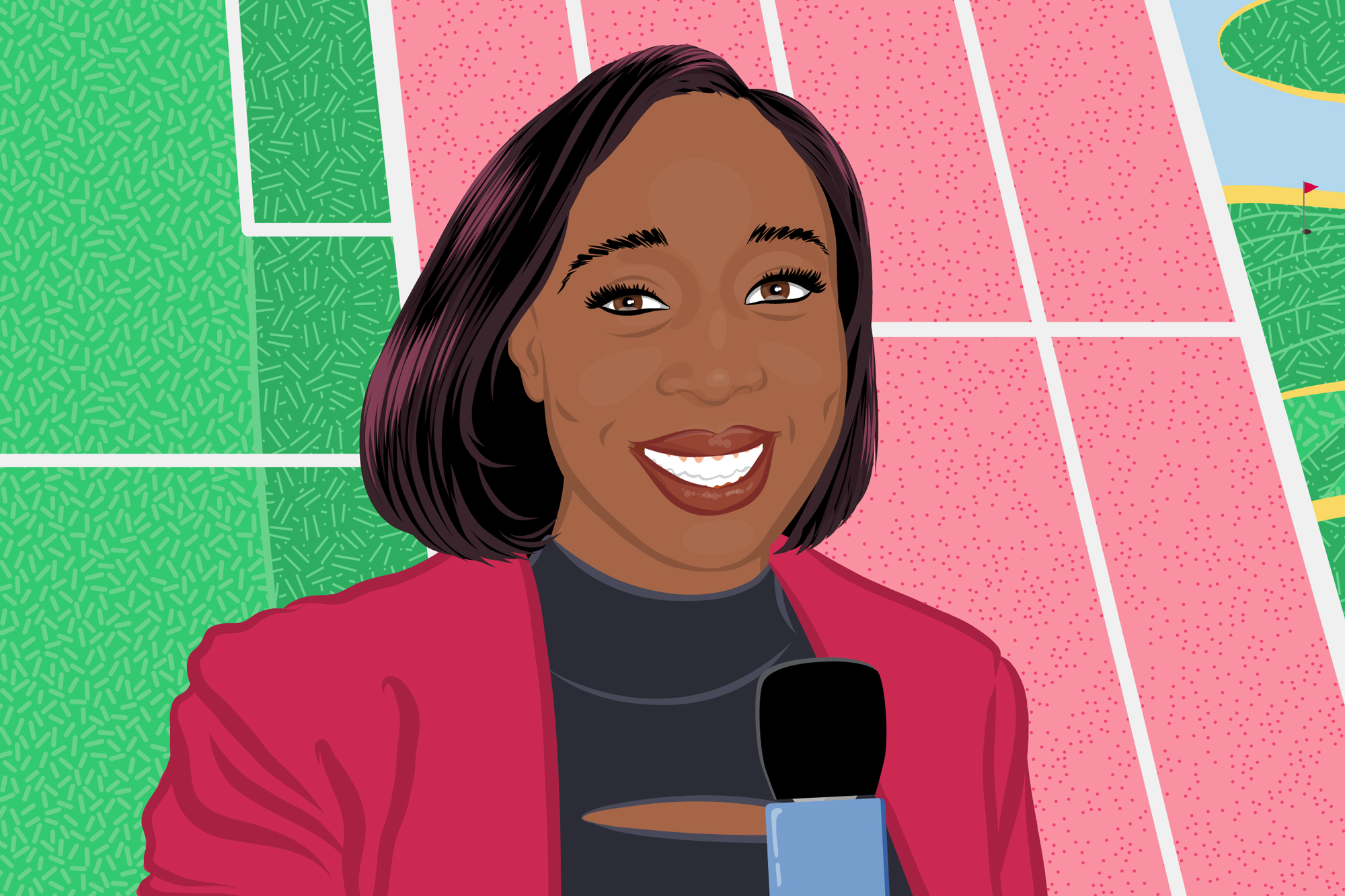
Eventually a knee injury at the age of 27 stopped her playing and forced her to realise what she wanted: as much of her life as possible to be spent in the world of football. She signed up to journalism night classes, applied for a temporary role at a radio station and, when she got it, quit her job and gave up her flat, sleeping on friends’ sofas while she started out in her new career. Injury is actually a relatively common starting point for many female broadcasters’ careers. For Jeanette, it was her knee and her Achilles tendon that, ultimately, changed her life. The London 2012 Olympic Games were approaching and Jeanette, a sprinter who had competed at the Beijing Olympics in 2008, believed she would be competing, fighting for gold in front of a home crowd. Instead, she found herself sidelined by injury and being offered a seat in the studio as a pundit. She didn’t want to be inside – she wanted to be outside, on the track. “Here I was, talking about something that I desperately wanted to compete at,” she says. “But I thought I would give it a go.” After appearing on the BBC, ITV and Sky, she caught the ‘bug’.
These mixed emotions resonate with Iona Stephen, too. The Sky Sports and BBC Sport golf broadcaster was also a professional athlete in her sport when she first swapped her clubs for a microphone. Her wrist had been plagued by injuries and she had undergone multiple surgeries when she was approached to screen test for golf presenting. “When I was first asked, after having the trauma of injuries and surgeries, I thought: hell, no,” she recalls. She is speaking from a corner of the Soudal Open course in Belgium, where she is preparing to broadcast. “I’m not going to work in a game that has just broken my heart. I thought, I can’t imagine going to work in golf when I’m not going to be able to play.” Something in her made her say yes, though, and a week later Iona tried presenting at her first event. “It was the best blessing I could have had. I was very fortunate, but it took me a while to transition and accept that I was going to have to say goodbye to my dream of playing and that my future was going to look very different to what I had in mind.”
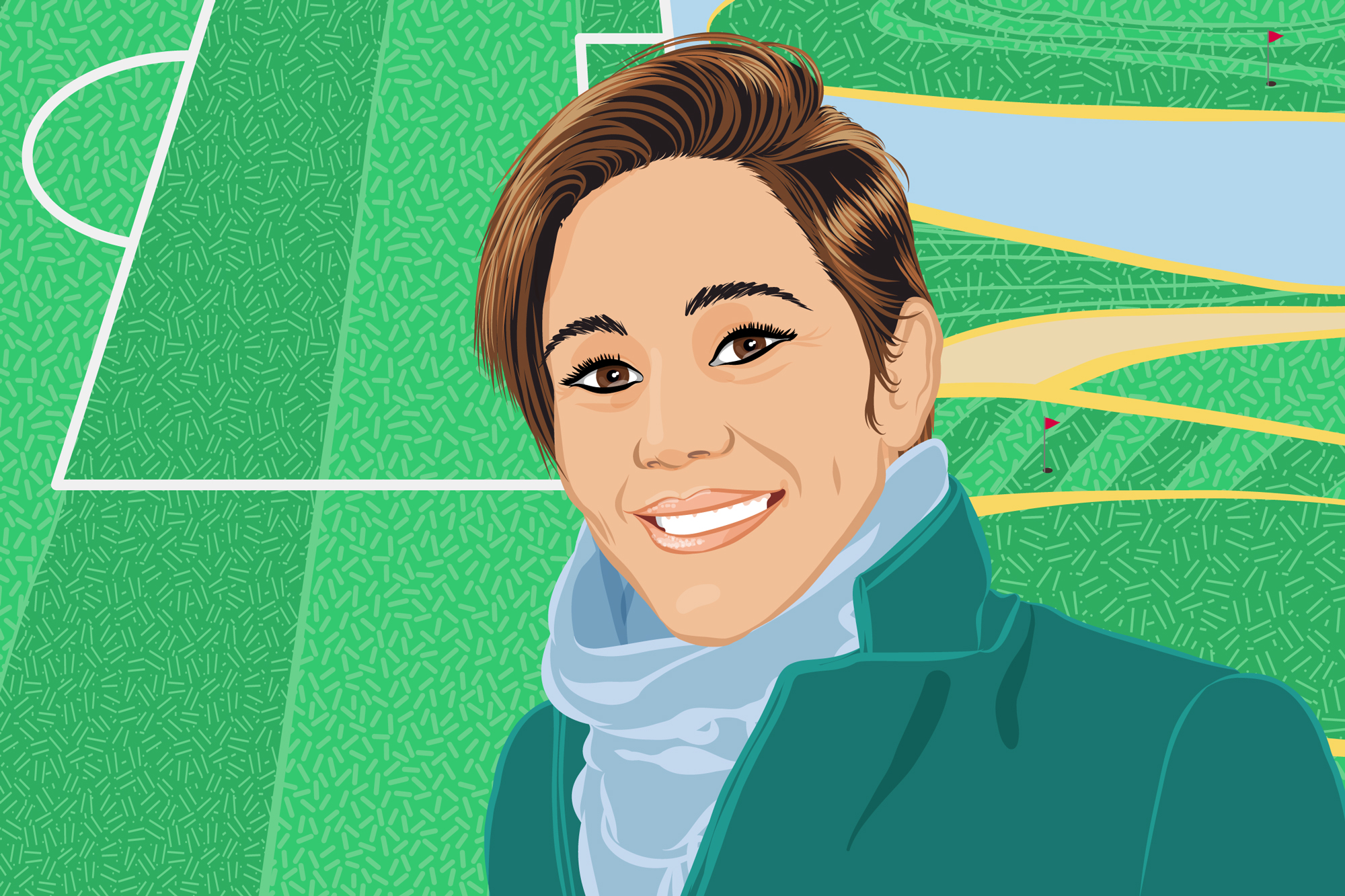
respect
Pained by her injuries, she had considered broadcasting once before, while sitting with a friend on the grass overlooking a course. Nearby, Eilidh Barbour was presenting links for the BBC. “I turned to a friend and said, ‘Gosh, what an amazing career that would be. Look at what she’s doing – isn’t she fabulous?’ I have a very vivid memory of thinking: if only I hadn’t put all my eggs in one basket, wouldn’t that be a marvellous career?” Six months later, it was her career, too. Eilidh herself remembers writing to Hazel Irvine, the legendary BBC presenter, as a young girl. Not only was this a female presenter, but a Scottish one, too – an easy idol for young Eilidh. In 2017, she took over from Hazel as the main presenter for the BBC’s golf coverage. It was one of the proudest moments of her life, “both because of who she is and because of what she has meant to me in my career.”
When Eilidh and I speak, she is on her way to Dundee United, where Celtic are hoping to be crowned title winners. She is also emerging from a Twitter storm, after calling out the Scottish Football Writers’ Association for hosting a guest speaker accused of making sexist, racist and homophobic comments. Eilidh, along with other female guests, staged a walk-out during the speech. She later said she had felt “deep disappointment” and never felt so unwelcome in the industry. As with Jacqui’s experience 15 years ago, the backlash has become a major part of the story, but Eilidh believes that is encouraging. “It’s all about starting conversations and making people aware of what their words can do and how they can affect people,” she explains. “Unless those conversations happen, nothing changes.”
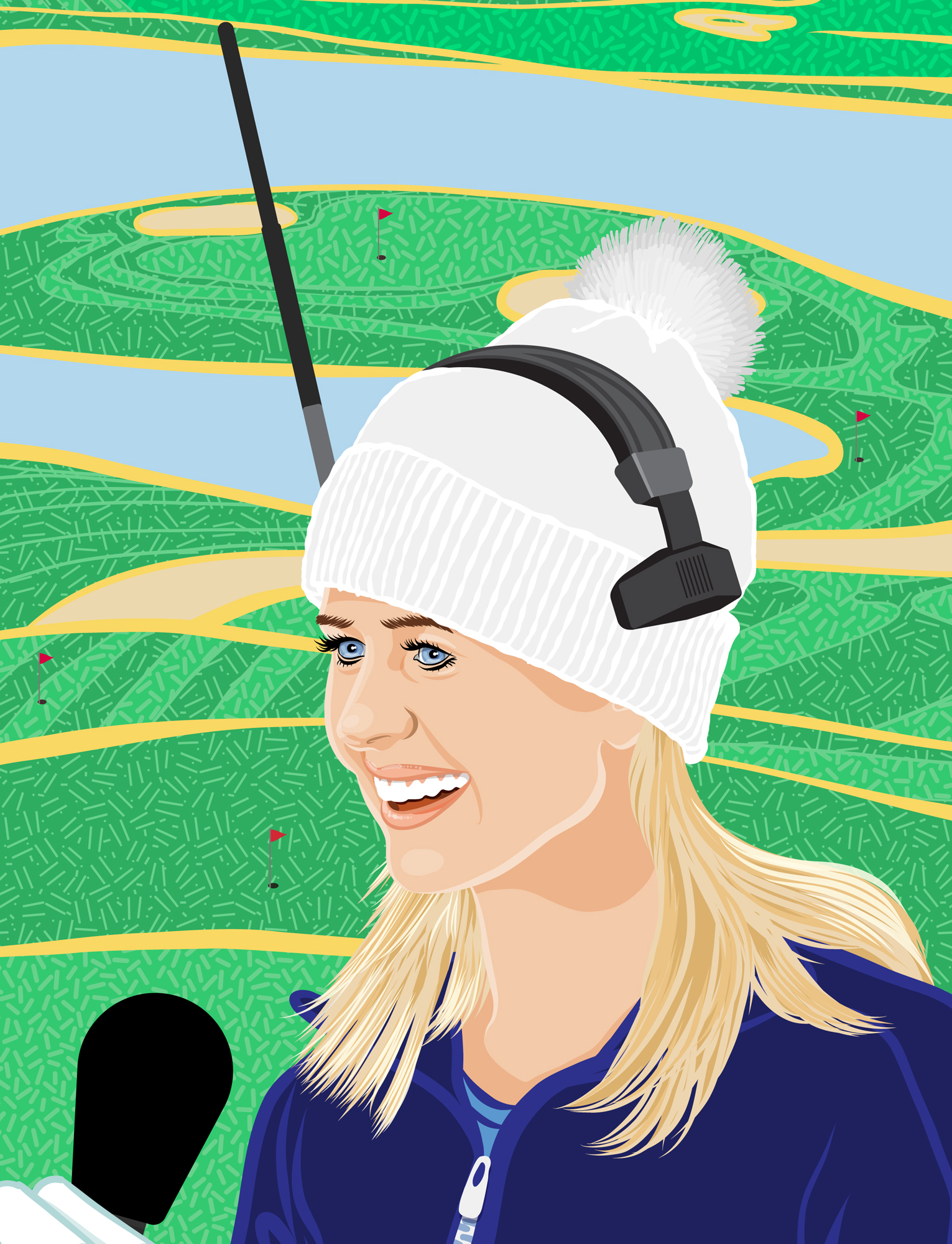
Some would argue that not enough has changed in recent years. “It’s disappointing that a lot of things haven’t changed in a very long time,” she concedes. But, she adds, she has never been made to feel like that before in the industry, and always felt at ease in the press room and among predominantly-male colleagues. Jeanette noticed an interesting pattern when she first started her broadcasting career. “I did find the energy towards me would shift when I told them what my background was,” she says. “If they found out that I had competed at the highest level, all of a sudden the conversation and energy changed. And I didn’t always like that because I thought, actually, you should probably treat me like this (anyway). I shouldn’t have to tell you that I’ve been to an Olympic Games for you to show me a bit of respect.” Iona found she got a different reception in men’s and women’s golf. “My producer said to me from the off: this is going to be three times the work for you, as a woman covering the men’s tournament, to earn the respect of the audience,” she says. “I do think any commentator or presenter has to earn the respect of the audience, it’s not something you are gifted on a plate. But as a woman, working in men’s sport, it’s going to take longer.”
Her background as a player helped her massively, she says. “When people realised I had a really deep passion for golf and had played at quite a high level, it immediately gave me respect, both from the golfers I was interviewing, and from the audience at home.” Iona broadcasts from fewer women’s events than men’s, but says the familiarity of the women’s tour makes it more easily relatable when she’s at work. “I do naturally feel more at home there. You don’t have to work as hard to prove that you have a right to be there.” It is hard to find a female broadcaster who hasn’t had to fight for the respect they deserve. Although she is now best known for her work on athletics, Jeanette’s early beat was West Ham United Football Club. “I’d go into the press room to see Sam Allardyce and I’d be the only woman in there, and the only black person. You are really trying to make your voice heard. I’m hyper-visible because I’m a black woman but, at the same time, I’m invisible (when) I’m trying to get my point across.”
Jeanette sits on the board of the Black Collective of Media in Sport and is passionate about improving diversity, not least to reflect the athletes on the pitch and in the field of play. “It is really hard not to be massively frustrated about things, but we are here for action, [to work out] how you change it. You see so many more people getting opportunities now. I think there’s a lot of work to be done but I do genuinely believe the landscape is changing – and for the better.”
Jacqui has seen momentous changes in her industry, but also in herself. “I think I’m proudest of the fact that I’m confident in my job now,” she says. “In the early days of commentary, I was so terrified, I felt the weight of the world was on my shoulders. Now, I go on air, commentating on world cups, presenting pitch-side, and I don’t get nervous anymore. I look forward to it and I feel like I belong, like I am entitled to do this job. “I’m proud of the fact that I go on air as a happy, confident person.” And, she adds: “It makes me so happy that I am not getting stick for being a woman.”
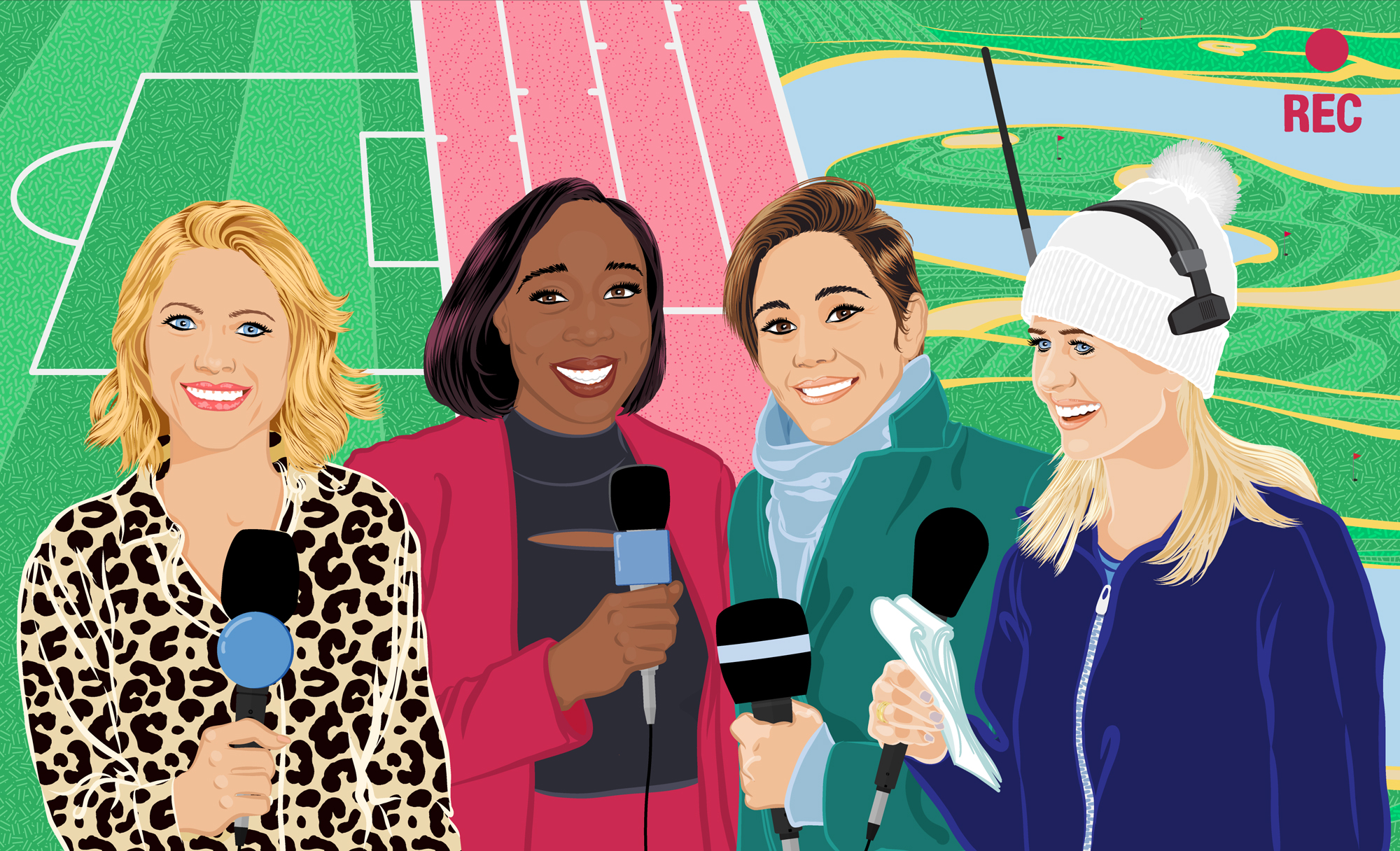
Illustration by Cybèle
Photography by Root
